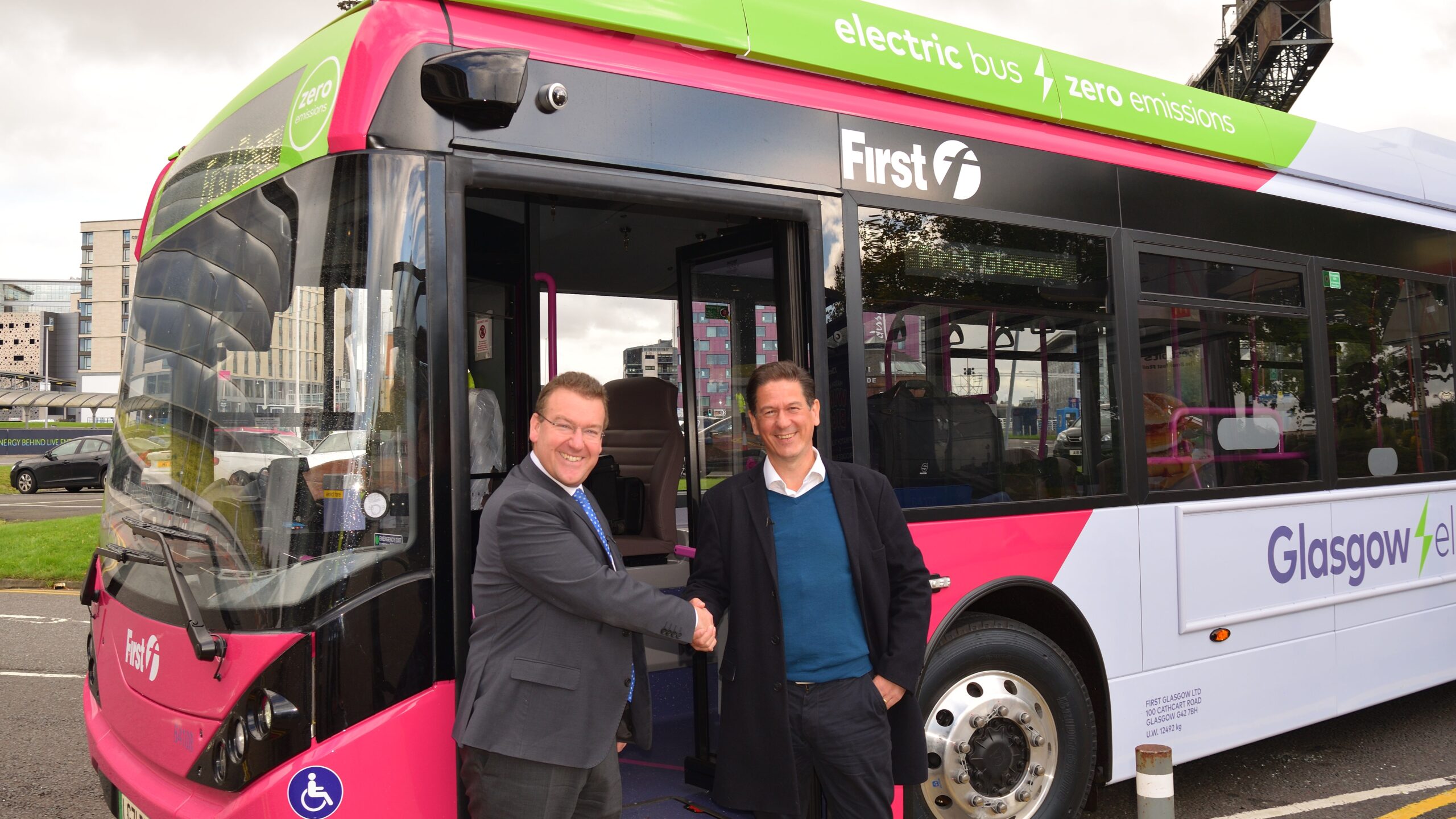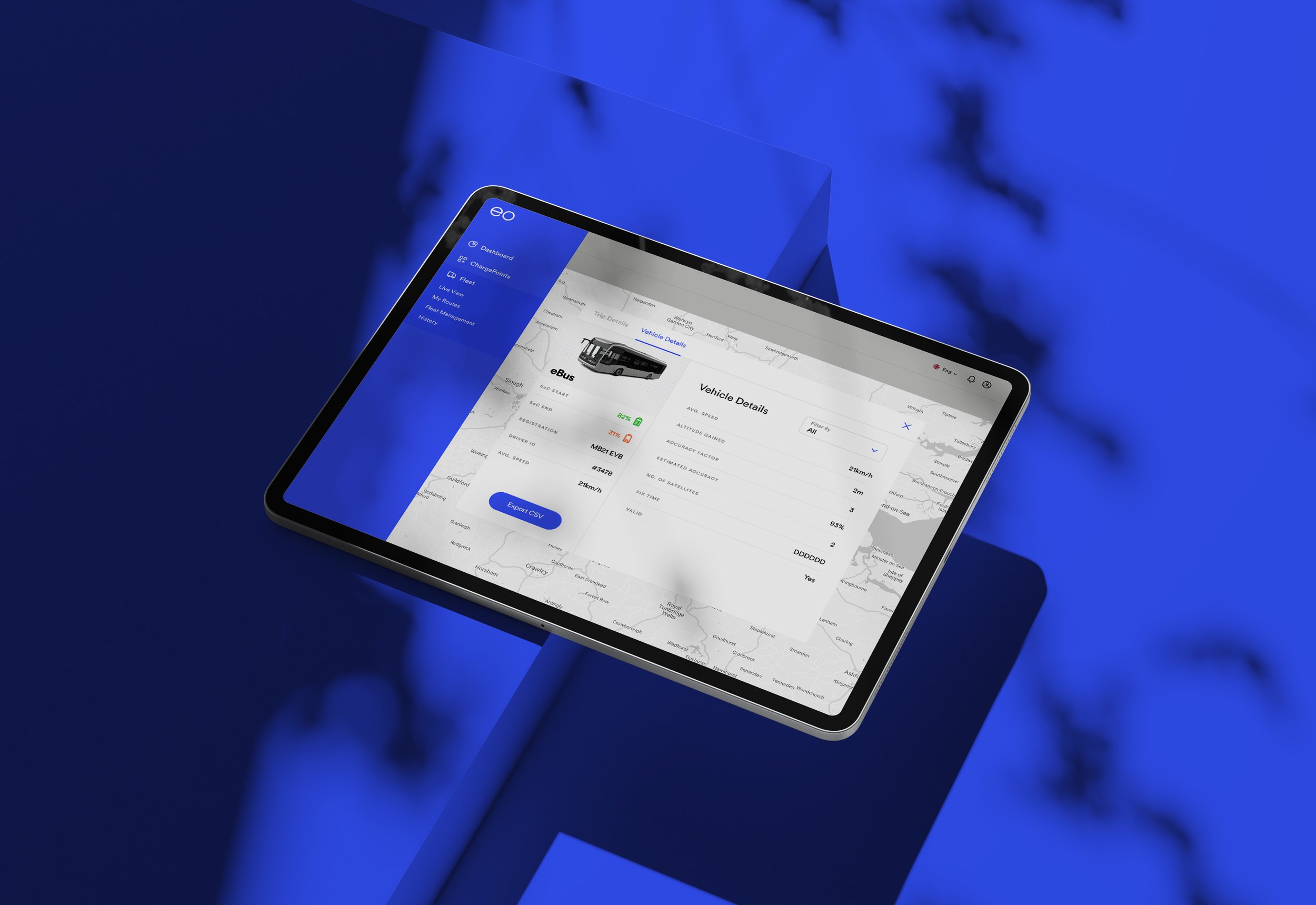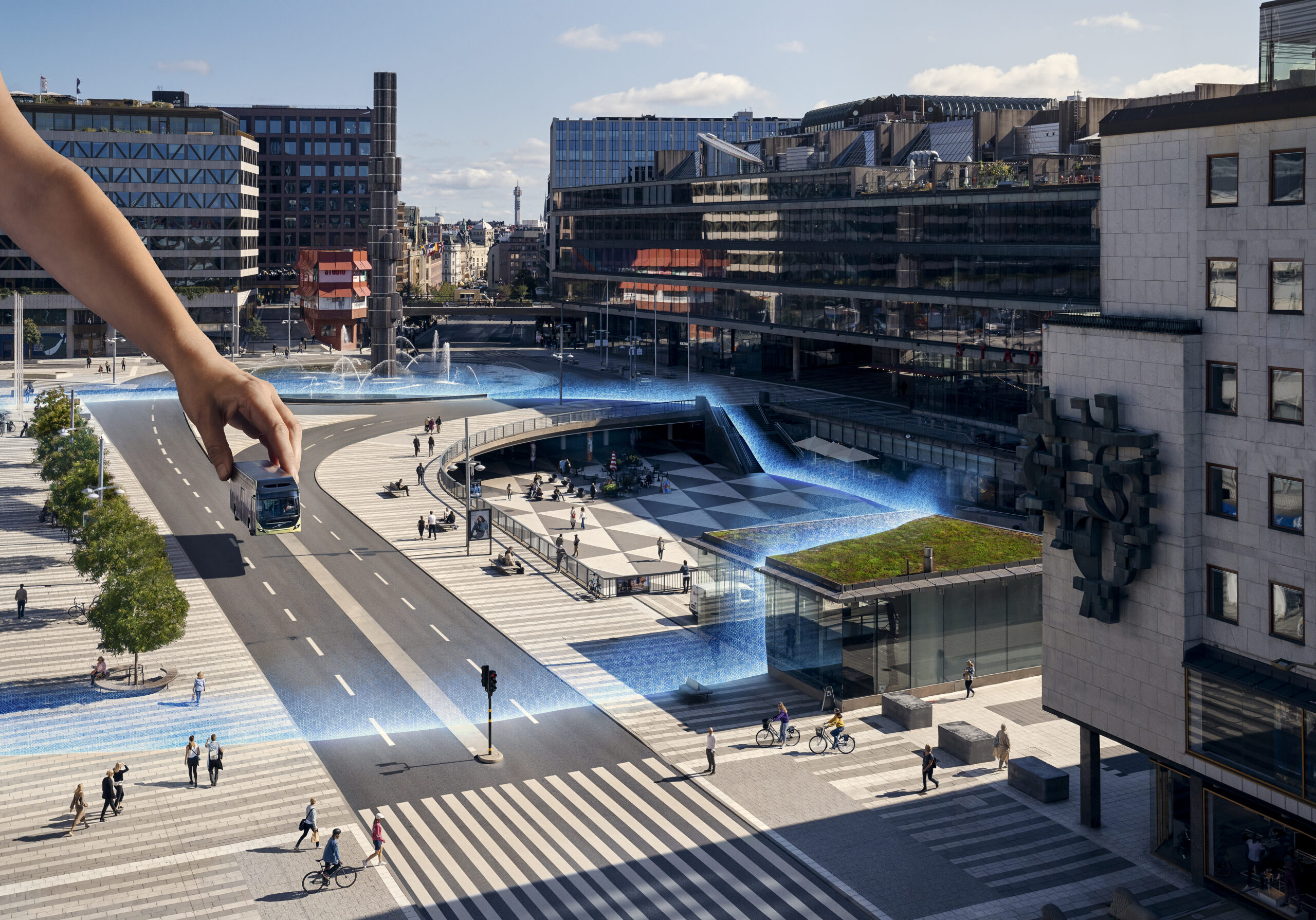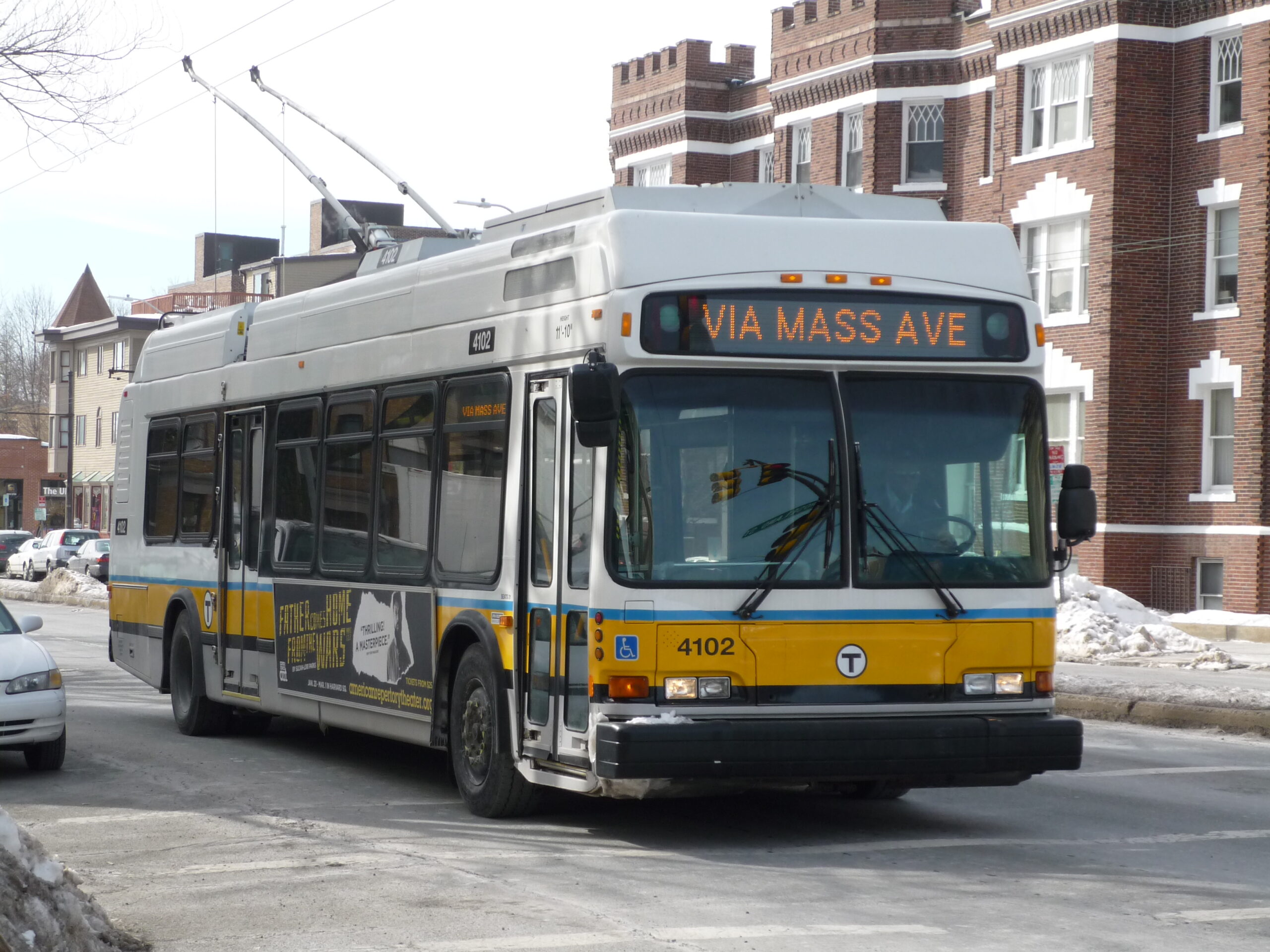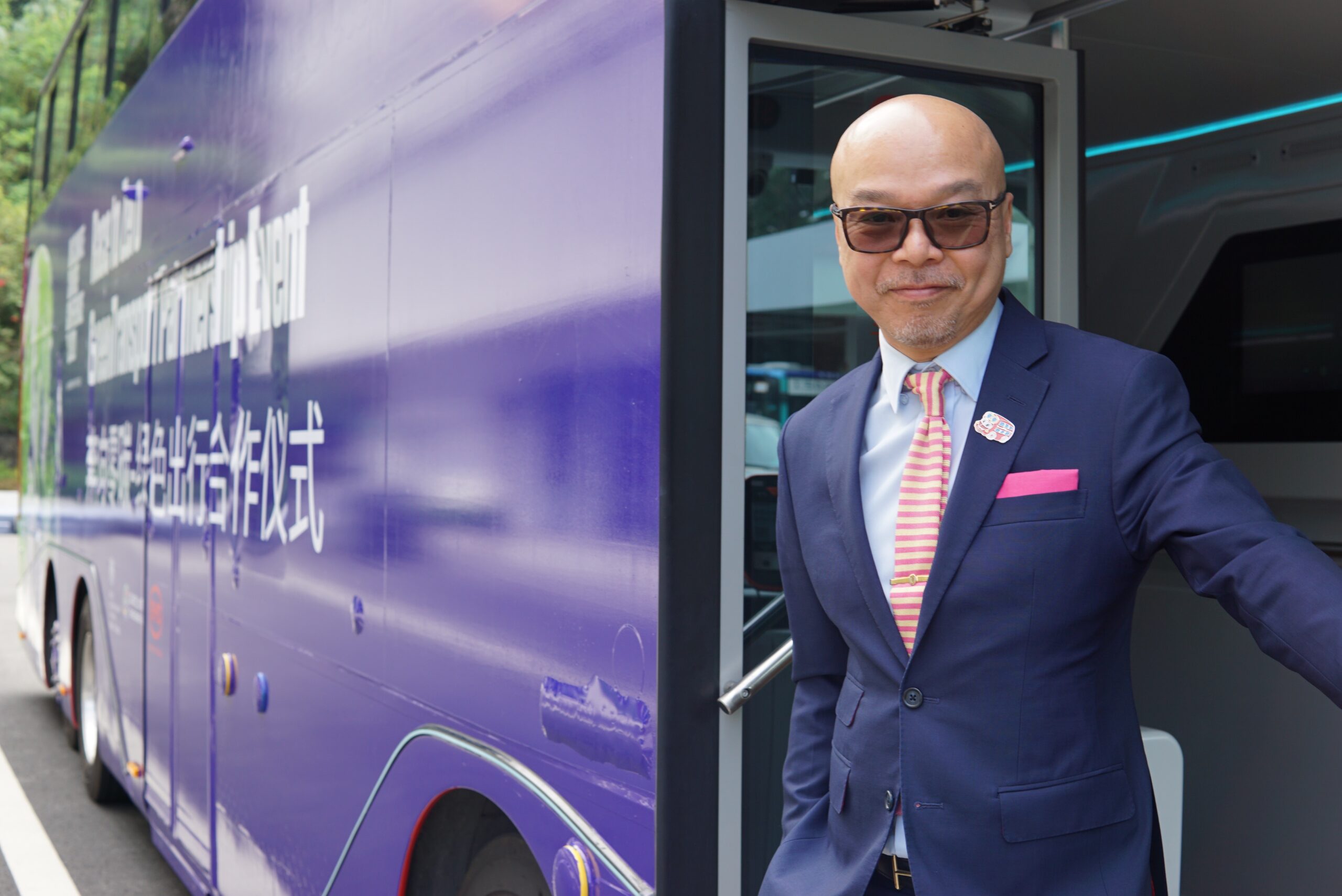That’s why Krakow uses one charging solution for both day and night
Krakow is committed to clean air and is investing in electric mobility in public transport like no other major Polish city. The first electric buses have already been operating in the city since 2014. In 2021, 50 more vehicles have been added, transporting passengers in the area of Krakow where the highest levels of air pollution are recorded (see: cleantechnica.com). But the expansion of the e-bus fleet presented the city with a challenge.
How to Efficiently Charge around 80 Electric Buses Overnight in the Future?
When it comes to electromobility, Krakow plays a pioneering role in Poland. The municipality was the first major city to withdraw all buses with Euro 4 engines and older from service and invest in the first electric buses (see: cleantechnica.com). At the time, the city relied on fast charging on the line and had its small test fleet equipped with roof-mounted pantographs from Schunk.
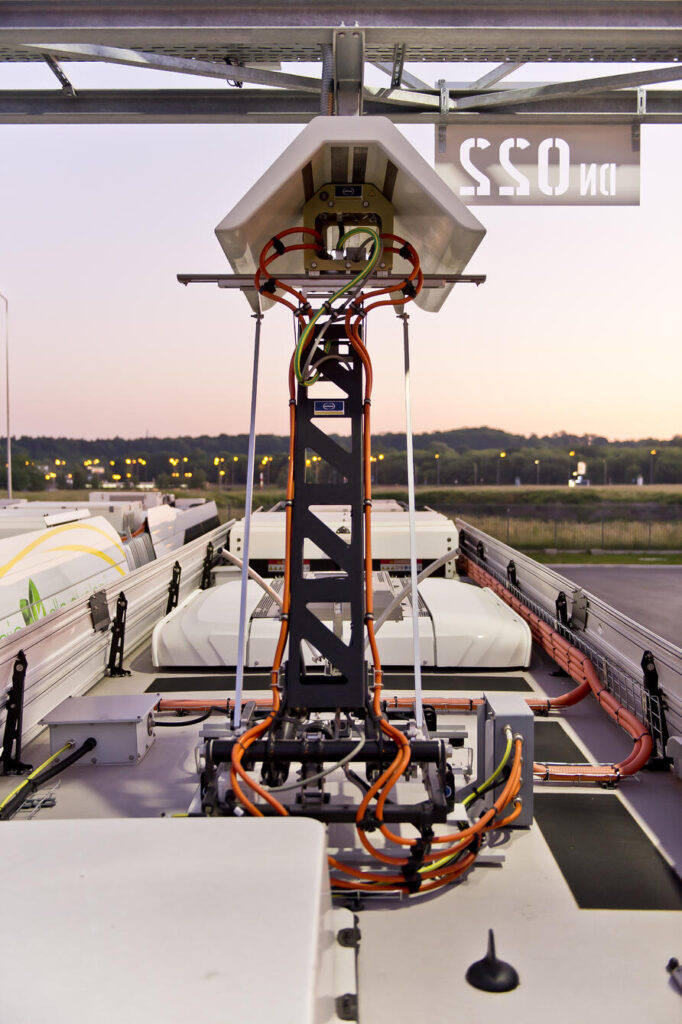
Roof-mounted pantographs work according to the bus-up principle. This means that the bus stops under a charging station and extends the pantograph mounted on the roof. This automatically connects to the charging station and charges the battery.
Charging stations of this type were installed at various terminal stops and in the city’s depots and were designed to charge the batteries quickly. At that time, overnight charging could still be realized by a plug-in solution in the depot.
Fast Charging by Day — Slow Charging by Night
In the meantime, however, the requirements have changed. Now, almost 80 electric buses require an efficient overnight charging solution. In other words, no one wants to fiddle with plugs here anymore. And it’s not necessary either. Because: Krakow has not only invested in 50 new electric buses with roof-mounted current collectors, but also in corresponding contact systems for automated charging in the depot. This means that all electric buses on Krakow’s roads can now be charged quickly on the route with high charging power and slowly overnight with low charging power.
A Typical Challenge of Transport Companies with Growing Electric Bus Fleet
Timo Staubach, responsible for the Strategic Business Area Battery Driven Vehicles at Schunk, says:We see here a typical challenge of transport companies with a growing fleet: How do I implement overnight charging in the future - via a plug-in solution or with pantographs?
In his view, automated overnight charging using pantographs offers decisive advantages.
Advantages of Charging Electric Buses in the Depot
- At the depot, the vehicle automatically contacts the pantograph already installed on the vehicle. Manual plugging in of charging plugs is no longer necessary.
- Due to the long charging time overnight, only little current needs to flow. Accordingly, charging stations with low charging power can be used, which are less expensive and more compact in terms of installation.
- The charging current collector combines safe and efficient overnight charging with high-performance charging during operation at selected stops. This means that all buses that are charged during the day with high charging power on the route can also use overnight charging. In this way, the depot is used efficiently.
In addition,
- battery cells with different charge levels can be brought to the same charge level by means of→ battery control, keyword “battery balancing”.
- energy for vehicle heating in the morning can be drawn directly from the charging station via the current collector without consuming energy from the battery.
→ In our Blog Post “Three Reasons Why Depot Charging Reduces Costs” you learn more about the benefits of depot charging of electric buses and get to know yet a further Schunk solution for exclusive depot charging.
Timo Staubach, said:For us as a manufacturer of charging solutions, it's great to see how Krakow is investing in electromobility in public transport, how the infrastructure is growing historically and how our system has become established.
Schunk Technology Charges Electric Buses All over the World
But it’s not just in Krakow that Schunk technology has proven its worth in helping electric buses get new energy. Worldwide, electric buses equipped with pantographs from Central Hesse operate in more than 100 cities in 25 countries. Thereby, “Smart Charging” solutions for the most diverse customer requirements are in use.
Get to know our portfolio of charging solutions for electric driven vehicles, which can be individually integrated into your existing infrastructure. We will be happy to advise you!
This article was originally published by Schunk.





